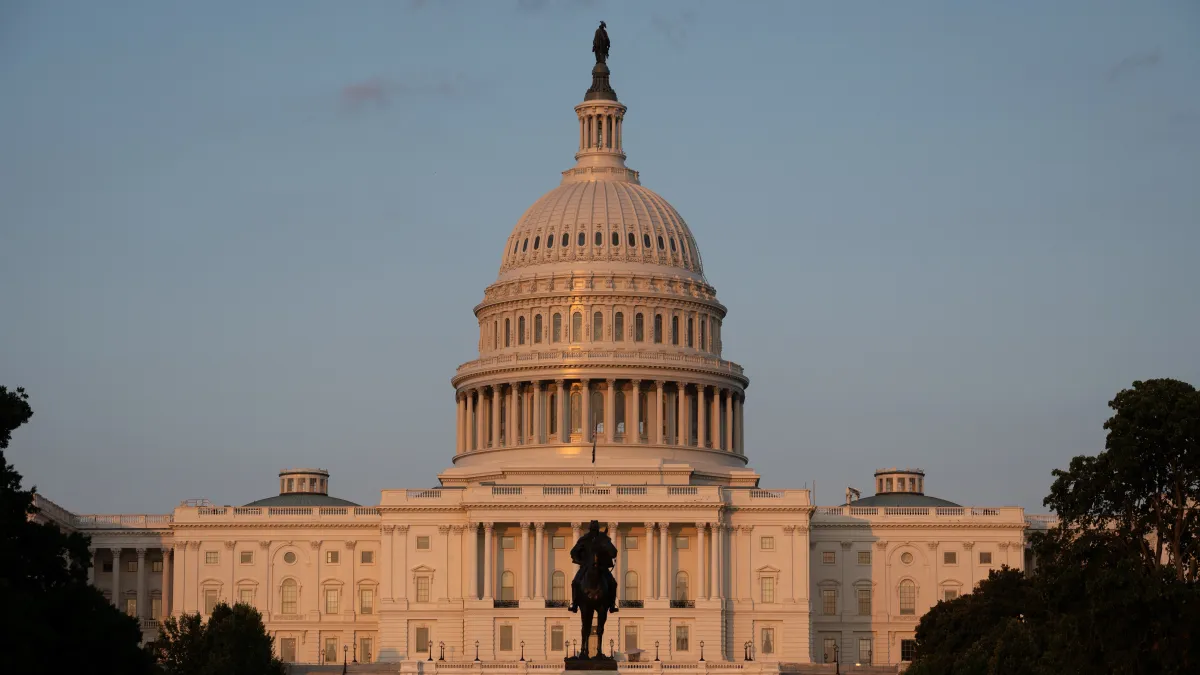
The tax package in the Senate version of the reconciliation bill would reduce revenues by $4.2 trillion over 10 years, according to a preliminary analysis from the nonpartisan Joint Committee on Taxation published late Monday.
The cost estimate comes in far higher than the one released this past weekend, which, as we told you yesterday, was scored on a “current policy” baseline, as requested by Senate Republicans. Using that baseline – which assumes that extending current policies has no cost, even if some policies such as the 2017 tax cuts are scheduled to expire at the end of the year – the cost of the tax provisions in the reconciliation bill comes in at $442 billion over 10 years.
Democrats asked the JCT to score the bill on a more conventional “current law” baseline, and doing so produced the $4.2 trillion estimate. That number could move higher by hundreds of billions of dollars if Senate Republicans raise the cap on the state and local tax deduction, as demanded by Republicans in the House.
A “rigged” estimate: Democrats rejected the current policy baseline analysis upon its release and lauded the new analysis based on current law as more reasonable.
In a joint statement, Senate Minority Leader Chuck Schumer and Finance Committee Ranking Member Ron Wyden said that “anybody with two eyes, a calculator and a basic understanding of taxes” could understand that the current policy baseline amounts to a “rigged” analysis that seeks to hide nearly 90% of the cost of the Republican plan.
“Republicans claim their plan costs only $440 billion, but this new analysis shows it actually costs nearly 10 times that much – more than $4.2 trillion,” the lawmakers said. “The Republicans want to rig the process and flout the rules, but Congress cannot operate in a world where one plus one equals whatever the Republican chairman of the Senate Budget Committee says it does.”
Thune pushing ahead: Majority Leader John Thune is pushing ahead with the Senate version of the Republican megabill and reportedly plans to start voting on the legislation Friday, part of an effort that could stretch through the weekend, with the aim of sending the bill to the White House by July 4.
"I think we get on it, and then we will plow through, and we'll get into vote-a-rama and grind it out until — until whenever," Thune told Axios.
Thune may not have the 51 votes he needs just yet but says he’s confident Republicans will fall in line. “Right now, everybody's unhappy on both sides, which tells you we're probably close,” he said. “Nobody wants to give up leverage until you have to finally vote on it.”
Thune may face challenges in the House, as well. Some House Republicans have declared that they will not vote for the Senate bill if it fails to raise the SALT deduction cap, which the House set at $40,000 but the Senate moved down to $10,000. Other Republicans have indicated that anything over $4 trillion in tax cuts is too much, raising questions about whether party leaders can hold their caucus together to push the bill through Congress.
President Donald Trump called on lawmakers to finish the bill, writing on his social media platform, “To my friends in the Senate, lock yourself in a room if you must, don’t go home, and GET THE DEAL DONE THIS WEEK. … NO ONE GOES ON VACATION UNTIL IT’S DONE.”